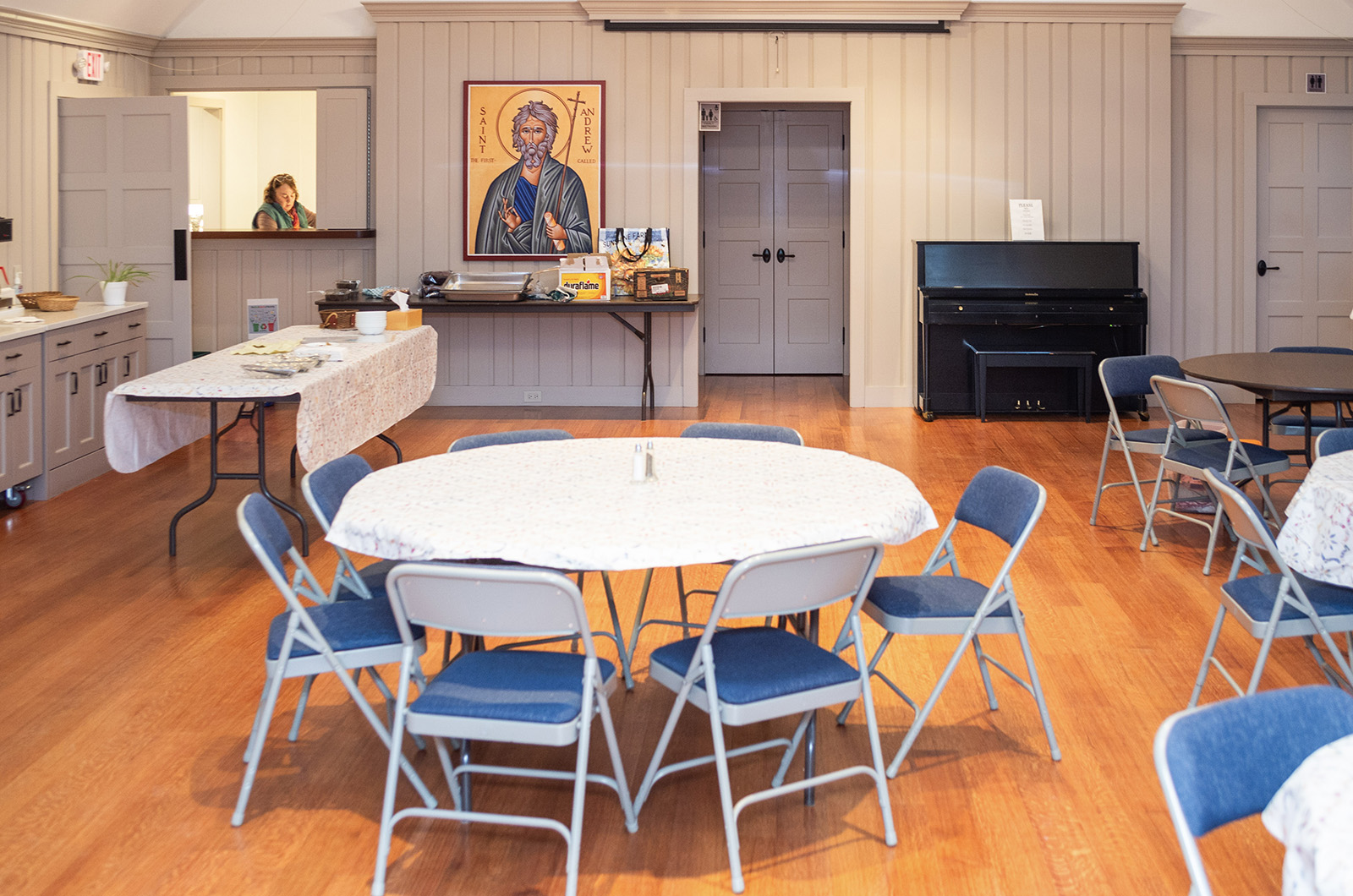As the Island’s cost of living continues to rise, local community supper programs are seeing an increase in residents looking for relief, with demand for food at an all-time high this year.
Run by volunteers at many of the Vineyard’s churches, community suppers began years ago as free sit-down dinners open to all in the winter months. The churches worked together to create an alternating schedule so that seven days a week someone could find a free meal during the off-season, along with a respite from the isolation of a Vineyard winter.
In recent years, a portion of the meals prepared have supplemented the Harbor Homes overnight winter shelter.
During the Covid-19 pandemic, however, many of those programs paused or switched to a pick-up or delivery model out of safety concerns. After considering a return to in-person meals after the pandemic hiatus, many churches are opting to continue their pick-up and drop-off schedules, which can service more Island residents.
The First Congregational Church in West Tisbury has seen an increase of 20 more regular patrons this year for its Wednesday dinner. Volunteer organizer Marjorie Peirce said the church is averaging about 140 meals a week. Many of those patrons have never participated in the program before, she added.
“Their situations have changed,” Ms. Peirce said. “Food costs a lot, housing still costs a lot.”
St. Andrew’s Church in Edgartown has seen a similar increase, reporting new people each week at their Monday night in-person dinners. At the same time, the parish is in dire need of drivers to deliver meals to the winter shelter.
“I think they just feel like their dollar isn’t stretching as far as it once did,” volunteer Lisa Lucier said. “Even when we go shopping [for the program], I notice our money is going quickly.”
The Good Shepherd Parish food pantry, which supplies many of the ingredients for these dinners, has also seen unprecedented demand. Sarah Stiegelman, who has run the pantry for the past year, said the pantry’s weekly visitors have jumped from 70 last winter to 175 each week this year.
“I don’t have enough food,” she said. “On Monday I bought 140 pounds of groceries and [two days later] my shelves are bare.”
Ms. Stiegelman stocks the pantry through an account with the Greater Boston Food Bank, but she said high grocery costs have created a “trickle down effect” across eastern Massachusetts. The Food Bank itself is short on options because of increased demand, she said.
“There are close to 50,000 accounts and we’re all battling over four cases of lettuce,” she said.
Programs are also starting earlier in the season than usual, largely to support the overnight shelter’s influx of new guests. The winter shelter has seen double the number of regular visitors this season, nearing its 28-person capacity almost every night since opening in November. The shelter depends on food donations from the community suppers and local restaurants to feed its guests each night.
Joyful Eatings, a program run through the Federated Church in Edgartown, donates all of its prepared food to the winter shelter in lieu of a community dinner. This winter the program started a month earlier to help meet the demand. It also began meeting once a week instead of once a month.
“The church has really stepped up to fill that void,” said Gretchen Regan, an Island chef and Joyful Eatings coordinator. “In the past, we were cooking for eight or ten people, but now we’re preparing dinner for 20-plus people . . . It’s a lot.”
Good Shepherd Parish and the Martha’s Vineyard Hebrew Center run a joint community supper program, serving about 80 takeout meals each Thursday, hosted at St. Augustine’s Church in Vineyard Haven. Having only just started up this month, the program has yet to see an increase over last year, volunteer Mary Ellen Larsen said.
The United Methodist Church in Oak Bluffs is the only other church hosting in-person dinners. The Saturday meals began earlier this month, Rev. Joanne Hus said.
Volunteers stressed that the suppers continue to provide much-needed human connection, whether hosting dine-in meals or takout.
“Some people don’t see anyone else that day,” Ms. Peirce said of the dinner deliveries.
Many patrons are older, live by themselves or have medical conditions that limit their mobility, she said. In one case, Ms. Peirce said her volunteers deliver to a camp in the middle of the forest, where four men have continued to live outside through the winter.
Ms. Peirce emphasized that more volunteers are always needed.
“Our program is really focused on keeping it sustainable,” she said. “We want to keep doing this as long as we can.”





